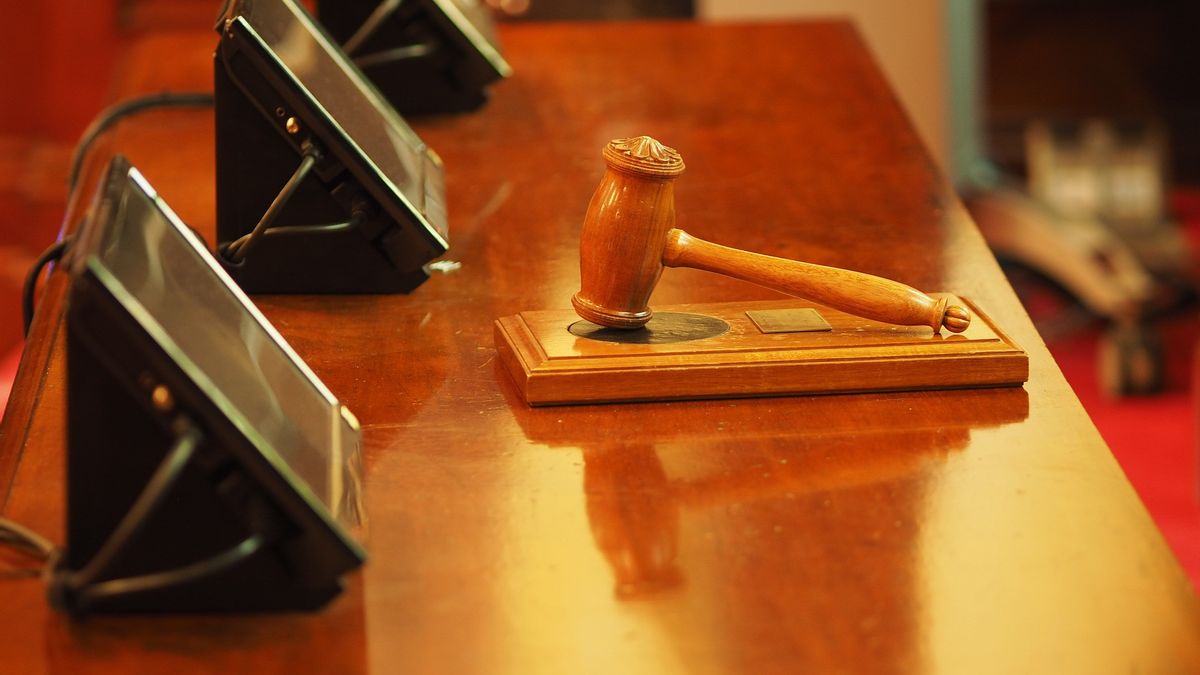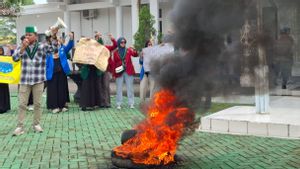JAKARTA - In the last few months, the COVID-19 pandemic has had an impact on various social, economic and law enforcement aspects. This happened in line with the Large-Scale Social Restrictions (PSBB) policy that was implemented to prevent the transmission of the corona virus.
Various activities ranging from teaching and learning activities in schools, worshiping, limiting the use of public transportation, to conducting trials during the pandemic are a problem. This encourages adaptation and new forms of normality in society, including the law enforcement process.
Where since early July, the Attorney General's Office, Supreme Court and Ministry of Law and Human Rights agreed to carry out online trials during the COVID-19 pandemic. At least 176,912 trials related to criminal cases have been heard online.
Responding to the new normality of the law enforcement process, Dr. Padjadjaran University Lecturer at the Faculty of Law, Dr. Lies Sulistiani, M.Hum, explained a problem related to the rules in the Criminal Procedure Code (KUHAP). As a basic guideline in the process of implementing criminal cases, the Criminal Procedure Code only regulates matters of a 'normal' nature.
"Meanwhile, during the Covid-19 pandemic, a set of regulations is needed that can accommodate the criminal case settlement process in accordance with applicable principles while still following social and psychological distancing guidelines," said Lies in a press statement received by VOI, Thursday, July 23.
Many obstacles occur when holding virtual court proceedings. In terms of facilities, many courtrooms have not been equipped with teleconferencing facilities. Many internet networks are also unstable.
The lack of resources with qualified knowledge in the field of mastery of information technology is also an obstacle. On the other hand, the possibility of trial hacking is very high.
On the suspect / defendant's side, the obstacles that occurred included the validity of the trial evidence and the evidentiary process that involved many witnesses and physical evidence that was presented in the evidentiary process.
"Therefore, looking at the current situation, it is necessary to prepare legal regulations, either PERMA or revise the Criminal Procedure Code by paying attention to procedural, substantial aspects and guidelines for implementing virtual trials for all parties," he said.
The Indonesian government has issued a number of policies to support criminal law enforcement during the New Adaptation Period, such as the Attorney General's Circular Number B-049 / A / SUJA / 03/2020 dated 27 March 2020 concerning Optimization of the Implementation of Duties, Functions and Authorities of the Prosecutor's Office in the midst of a pandemic Covid-19; as well as the Cooperation Agreement between the Supreme Court-Kejakgung-Kemenkumham, April 2020, regarding the Implementation of Trials via Teleconference.
Regarding the Cooperation Agreement, this is done considering that the Criminal Procedure Code does not explicitly regulate hearings by means of teleconferencing. However, the teleconferencing method has been used in the trial processes of a number of past cases in Indonesia.
"The examination process via teleconference is an innovative and progressive breakthrough. However, we have to be selective at what stages and what cases can be implemented virtually or not, "said Lies.
Eli also revealed that the virtual trial basically still has to pay attention to the provisions in the Criminal Procedure Code, including Article 64 of the Criminal Procedure Code, Article 13 of Law Number 48/2009 concerning Judicial Power, to Article 25 of Law Number 46/2009 concerning the Corruption Court, which basically regulates that court proceedings must be open to the public and it is the right of a defendant to be tried in a court session which is open to the public.
"Meanwhile, in Article 230 of the Criminal Procedure Code: Judges, PU and PH, the court session is held in the court building in the courtroom, provided that the court clothes and their respective attributes," he explained.
The English, Chinese, Japanese, Arabic, and French versions are automatically generated by the AI. So there may still be inaccuracies in translating, please always see Indonesian as our main language. (system supported by DigitalSiber.id)












